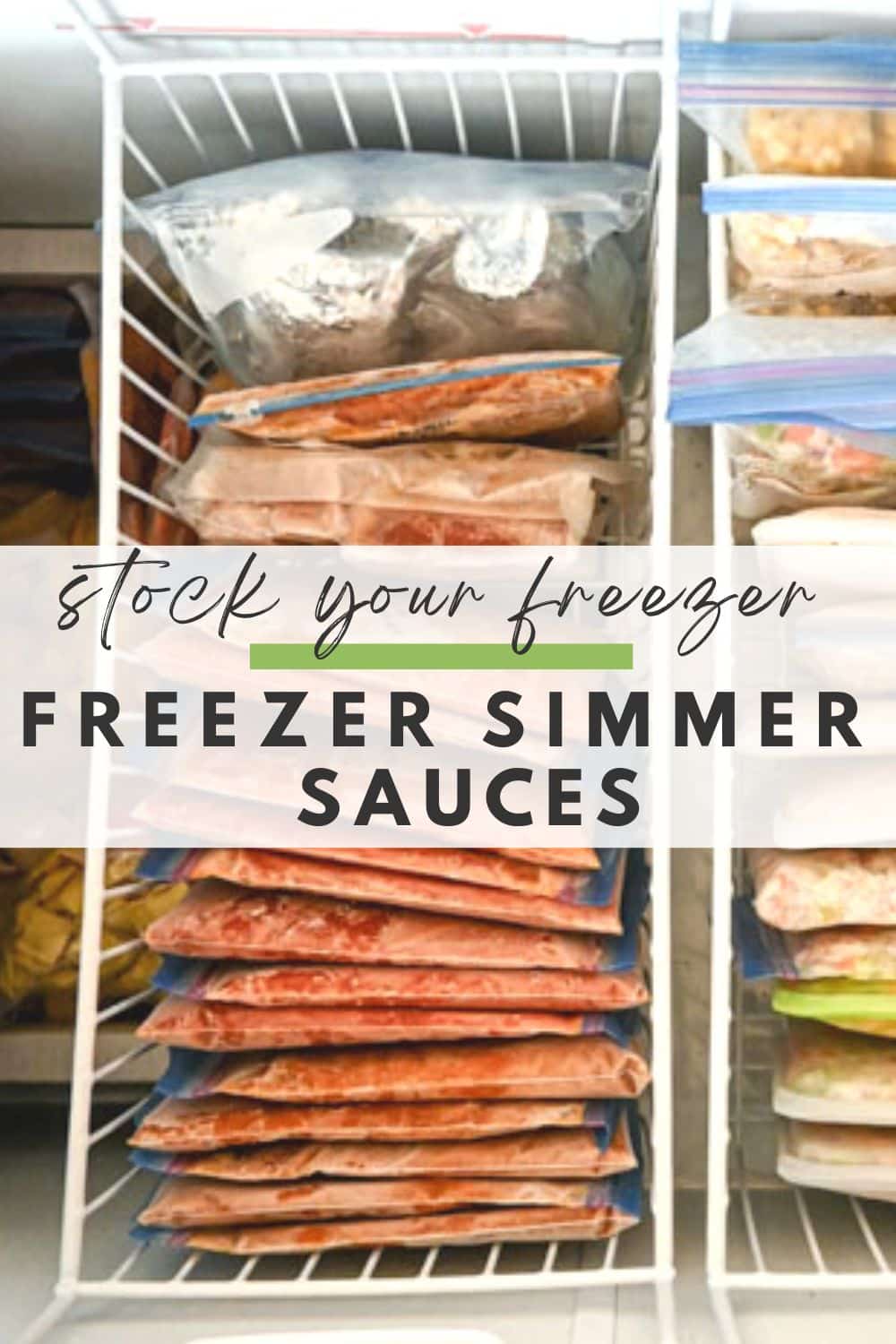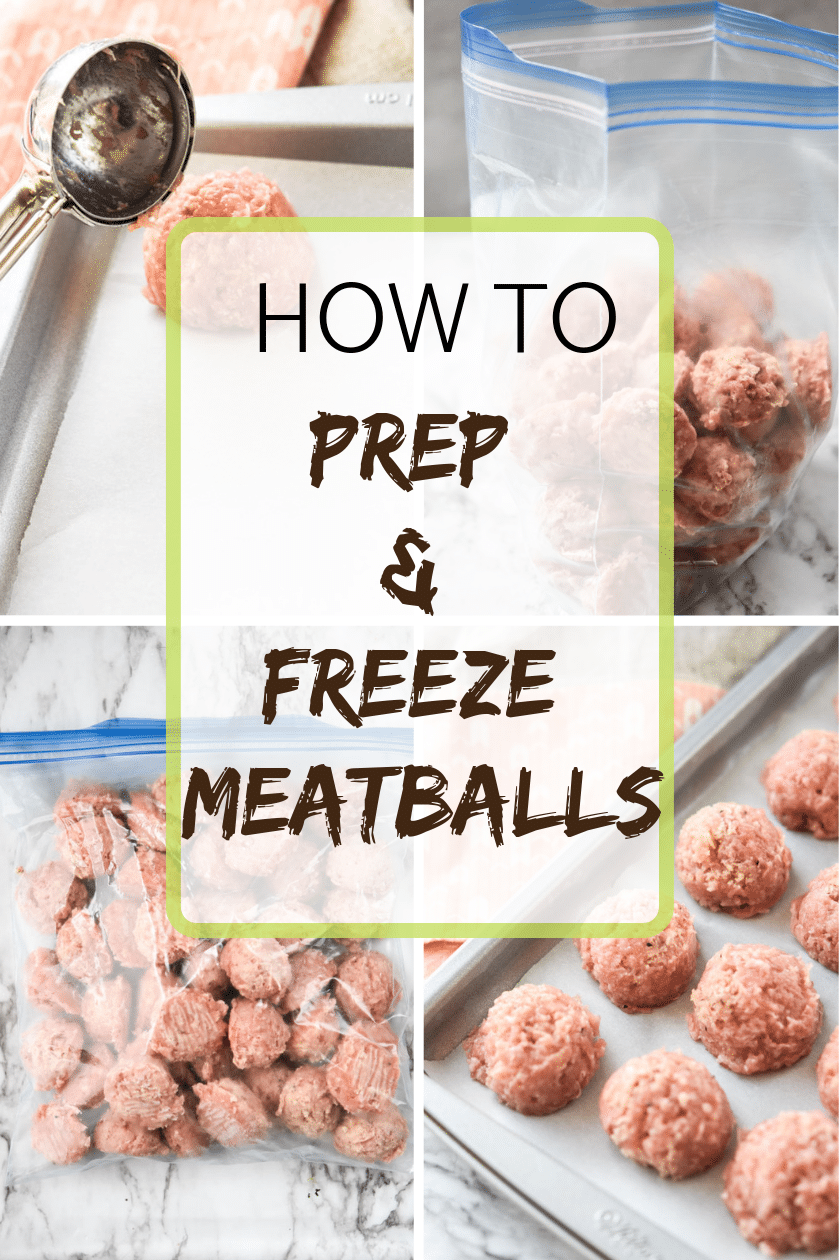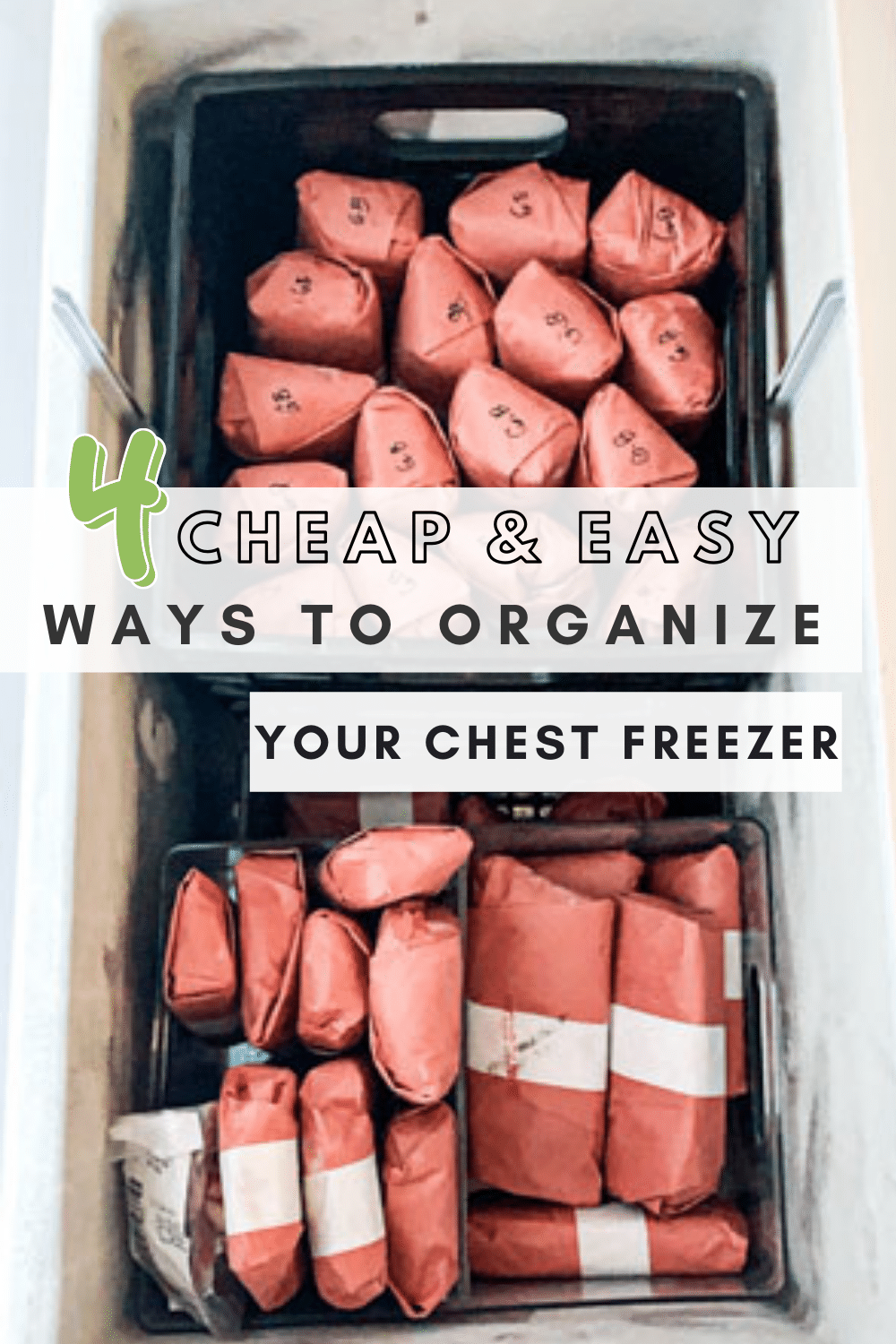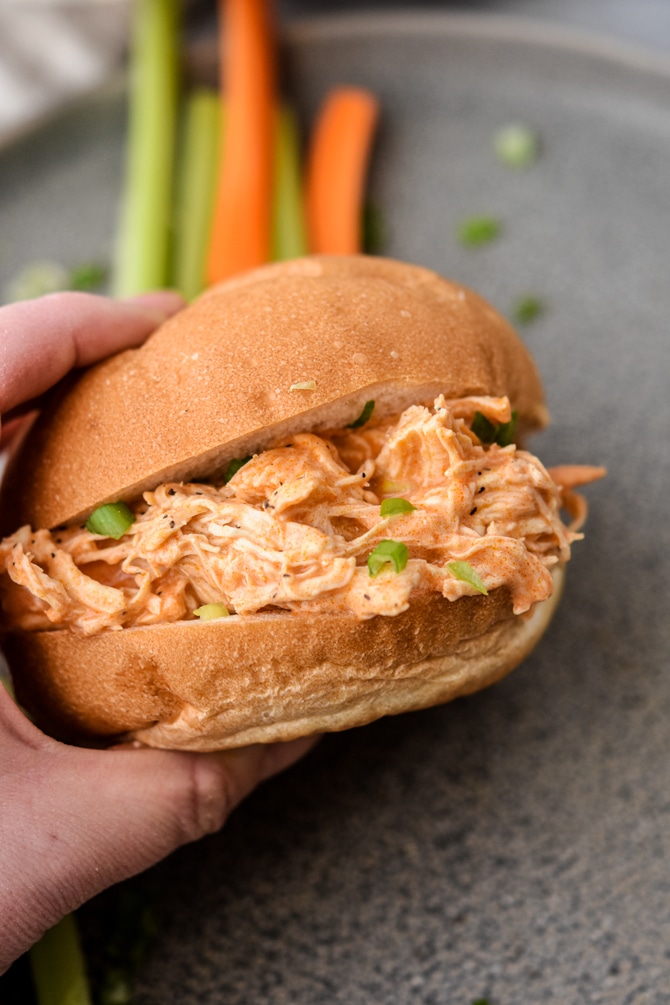The best ways to prevent freezer burn
Freezer foods and freezer ingredients can get a bad rep if they are all frosty and freezer burnt, I get it. Today I am teaching you all about the best ways to prevent freezer burn!
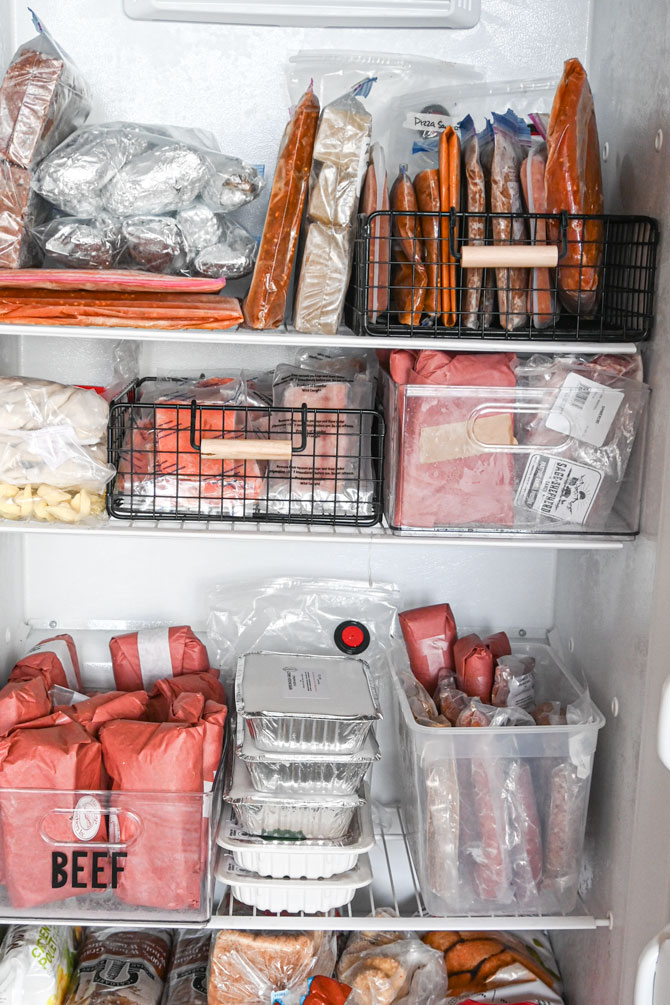
Is freezer burnt food safe?
Yes, freezer burnt foods are safe (as per USDA), but the quality is sacrificed and parts or all of your freezer item have the dreaded dry spots.
What is freezer burn?
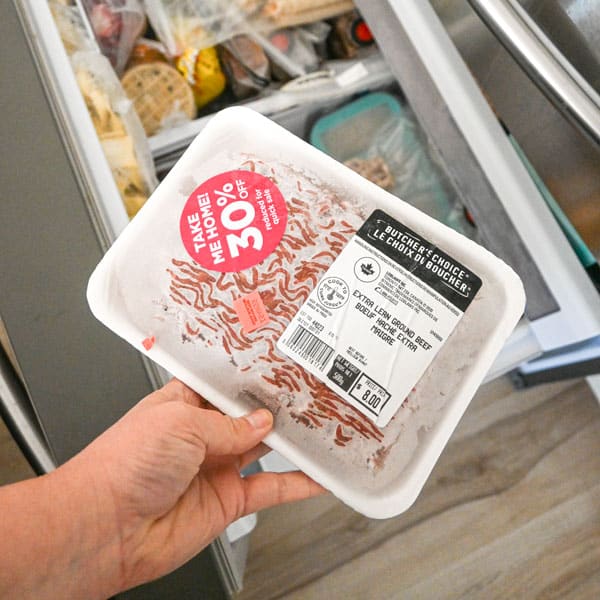
Freezer burn is when your food dries out due to dehydration and oxidation from exposure to air.
When food is frozen, all of the moisture moves to the surface of the food, and then if it is exposed to air, it undergoes sublimation (which is kind of like evaporation in the freezer world but is going from solid to gas).
If you like to geek out on science as much as me, you can get real deep into the science here.
When this happens, your food dehydrates, and then you get freezer burn.
Ways to prevent freezer burn
There are a few tricks and tools to prevent freezer burn. To prevent freezer burn, you are going to want to use as many of these tricks, methods and tools as possible to get the longest lasting quality from your freezer foods!
Freeze things as fast as possible
The colder your freezing environment is, the quicker your foods will freeze. When you freeze things quickly, you will have smaller ice crystals form and smaller crystals, mean less chance of significant freezer burn.
You want your freezer at -18F (0C) as a minimum.
Eliminate Air
This is by far the number one way to reduce freezer burn.
The gold standard is going to be vacuum sealing, but that is not always an option.
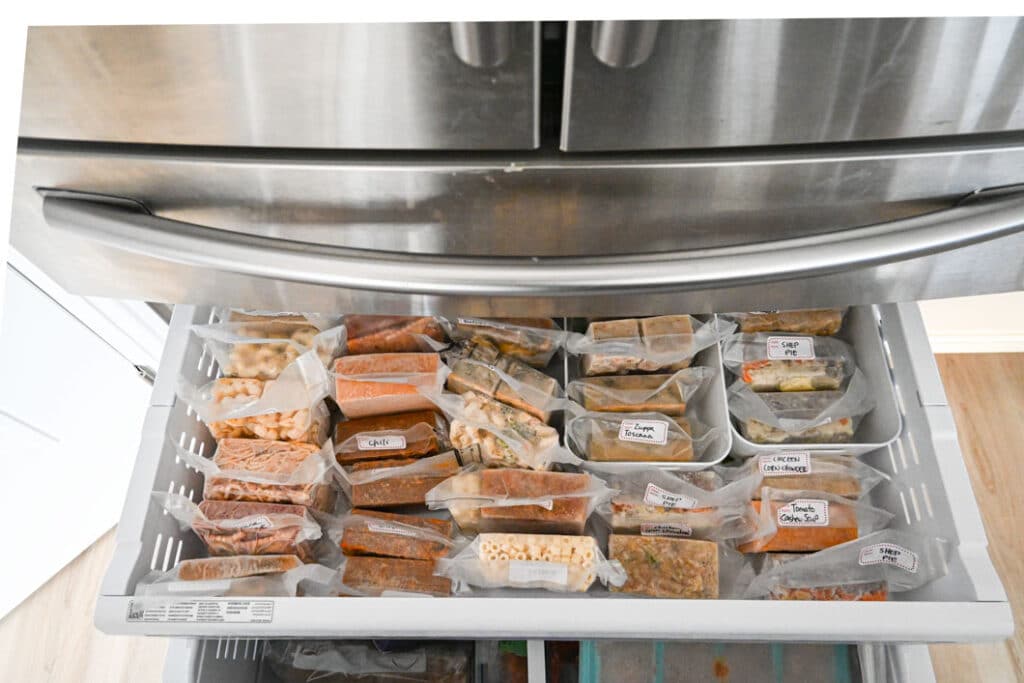
Unless your raw meat came in an air tight container, you will want to transfer it. For things like packages of chicken breasts, you will want to wrap each one individually, then store in a freezer bag.
For things like ground beef, you want to remove from the package and move to a zip bag. This is a bonus too, because you can then press down to make the bags flat and optimize your freezer storage space.
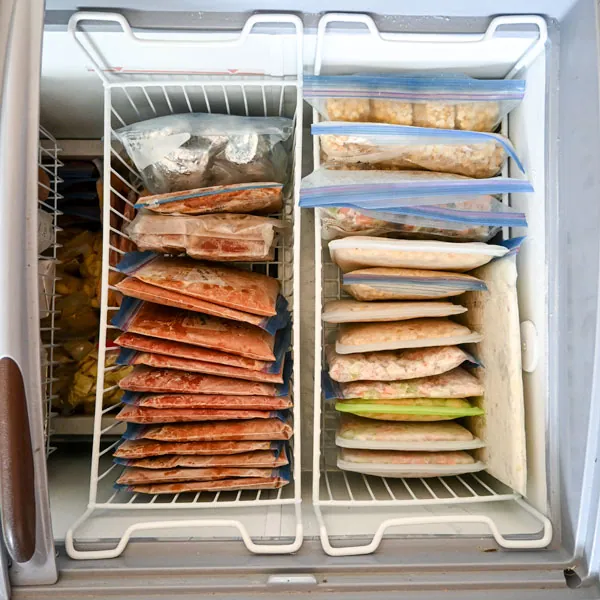
If you are storing foods in rigid containers, like jars (yes you can freeze in jars – here is how)
Completely cool foods (unwrapped and uncovered)
When you put freshly cooked foods into the freezer (like a soup), you are going to end up with huge ice crystals and instant freezer burn.
Always allow your foods to fully cool and better yet, be COLD when you put them into the freezer. I place my foods into the fridge before freezing.
Also, do not cool things like soup with a lid on. The condensation will accumulate on the surface of the food, and again, you will have freezer burn.
Use up your freezer stock!
The best way to prevent freezer burn is to use up your freezer stock and decrease the amount of time your food is frozen for.
Keep inventory so you know what you have on hand so you can use it up.
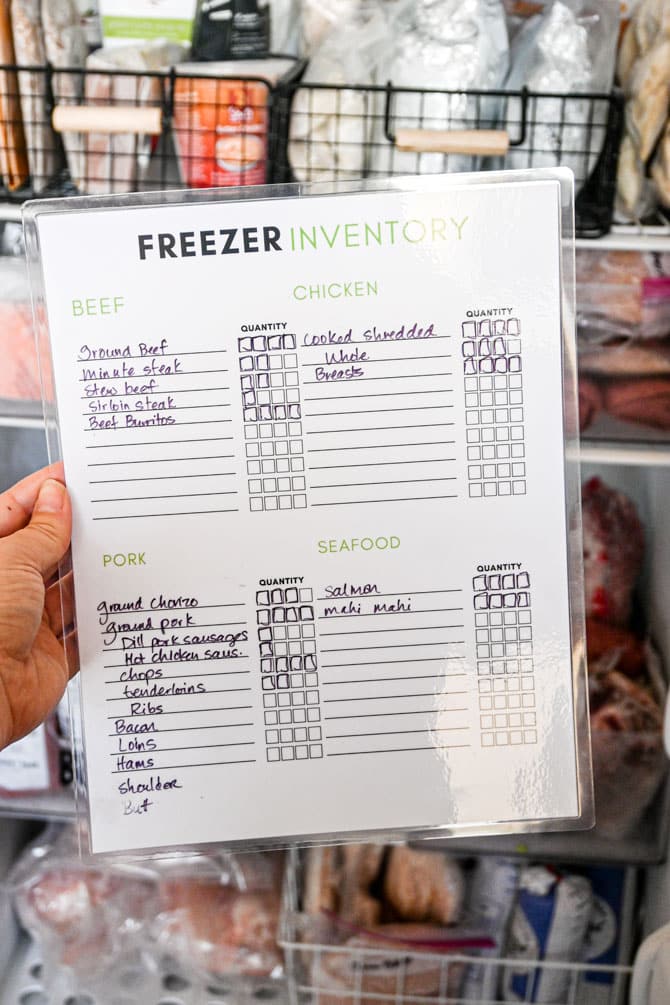
Also, try reverse meal planning where you create a meal plan for the week based on what you have on hand in the freezer and your pantry, and then purchase only what you need to complete the meals!
To get started with meal planning from your freezer and pantry, check out this post which has our free printable guide to help you get organized and plan around what you already have!
Reduce package size as you use it up
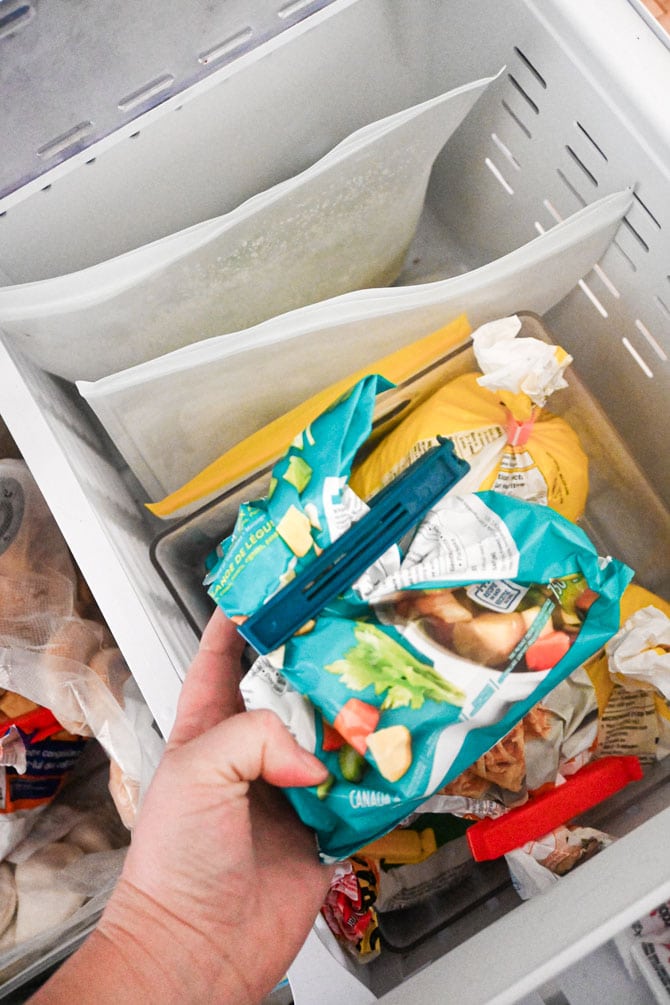
This technically falls under the category of removing air but I think this gets missed as a good way to reduce freezer burn.
Picture a full zip top bag full of corn. As you use it cup by cup, you will end up with half a bag of corn and half a bag of air. This is why the last little bit of frozen fruit or frozen veggies as the most freezer burn.
You can cut the bags down an then add a bag clip to combat this. Or, you can transfer to a smaller bag/container as you use your ingredients up!
Minimize opening the freezer frequently and for long periods of time.
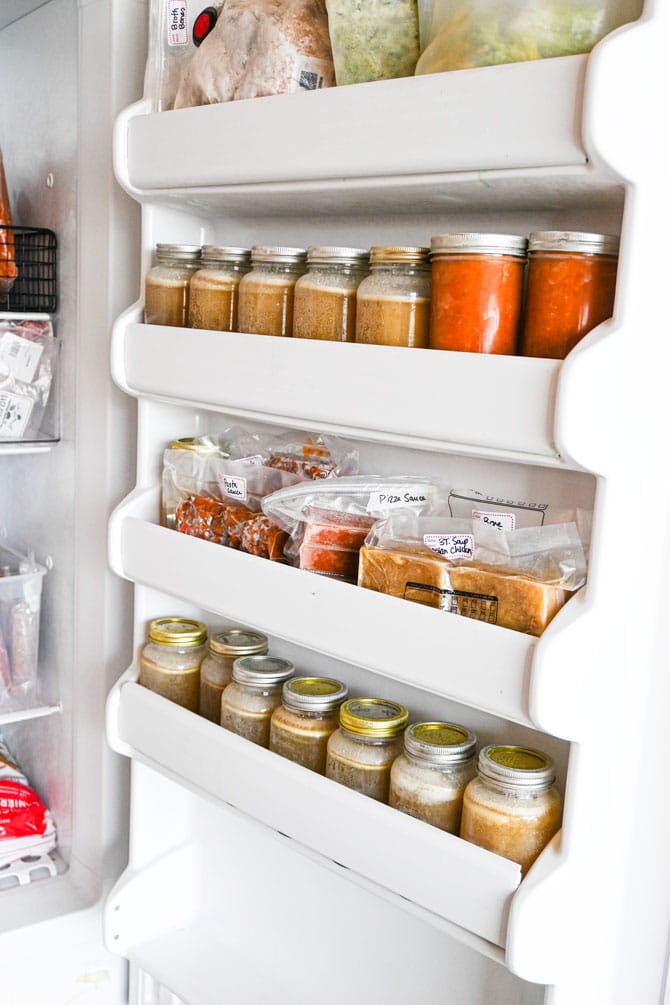
Foods stored in the doors of freezers are more prone to freezer burn because they are affected them most by the shift in air temperature.
Keep your freezer temperatures as consistent as you can and limit the freezer opening constantly, or for long periods of time.


